Role Play: The art of herding cats
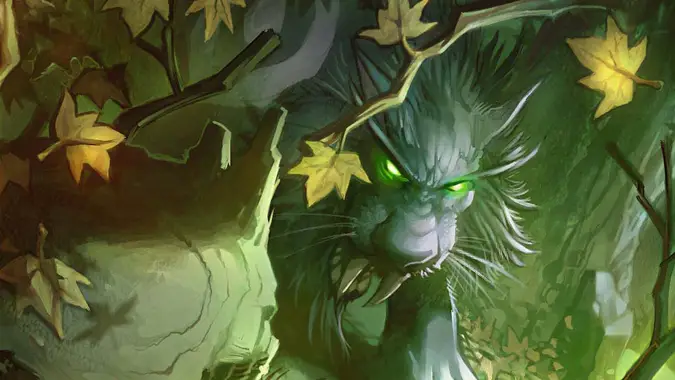
Last time, we talked about creating a storyline — a limited-time, player-run event for a guild or group. These kinds of activities do a lot toward keeping roleplay going between members. They also give a guild or group some kind of unified purpose, a reason for all these disparate characters to stick around, and stick together. A successful guild — whether it be PVE, PVP, or RP — should always have something for its players to do. That’s one of the big reasons that players join guilds in the first place!
But just creating a storyline isn’t enough. You need to guide your players through that storyline to some kind of successful conclusion. And that guiding hand should extend to other events and activities as well. Roleplaying is a social activity at heart, and sometimes people have a really hard time being social. That’s where the fine art of cat herding comes in — the ability to guide your guild and fellow roleplayers to moments that encourage that social aspect.
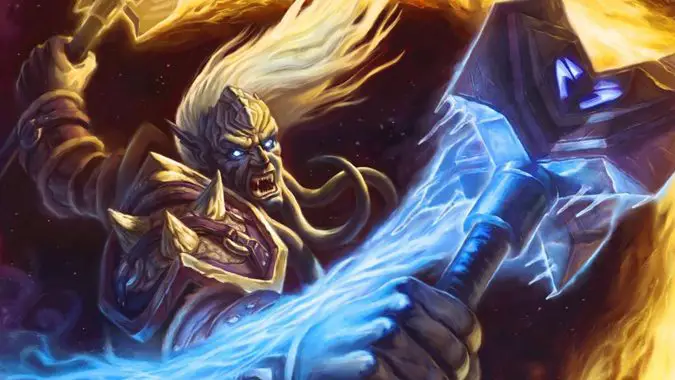
Storyline events
In the case of events, it’s sometimes difficult to get everyone on the same page. Schedules vary from person to person, and you’re never going to find a magic time when everyone is available. The solution to this is to simply switch up your scheduled times from week to week, making sure that at least a fair majority of people can participate. Players don’t need to be there for every event. And if they miss one, make sure you have a summary of the event posted somewhere so they can see what went down while they were away.
While running an event, you’re going to be dealing with a lot of characters that have vastly different personalities. Some might get along, others…not so much. But you want to make sure everyone has a voice and an opportunity to speak. Prior to starting an event, have everyone /roll for post order. That way, people know when they’re allowed to put a reply in, and nobody is talking over each other. This gives the event room for everyone to speak and have their say.
Sometimes players might get stuck on the back and forth between characters and miss the focus of the event. It’s up to you to guide them back on track. This is where having an NPC character acting as a guide can help out. You don’t need to have that character actively participating — just have them tag along and be available for player questions. If players seem to be stuck, have the NPC conveniently pipe up and bring your group’s attention back to where it needs to be.
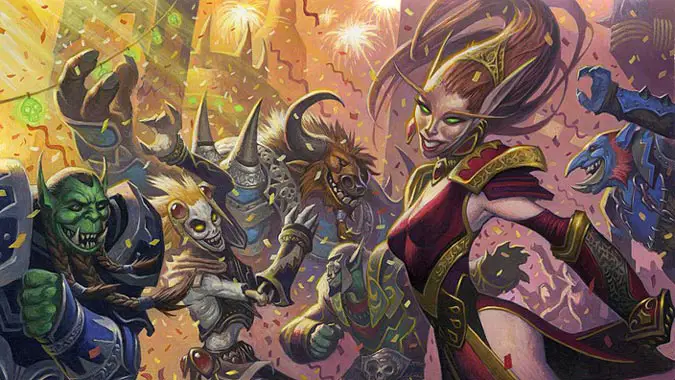
Meetups
Storyline events are a great way to bring people together. But when you aren’t running stories, you should still have things for your players to do. Weekly meetups are a great way for players to stay in touch and keep the roleplay flowing. These events don’t need to have a purpose — in fact, they really shouldn’t have one.
They don’t need to take place at the same location, either. You could do a tavern night one week, fishing or a camping trip the next. Have a character throw a party at their estate. If there’s an in-game holiday going on, make an event so your group can get together and celebrate. The Darkmoon Faire makes a great once-a-month spot for impromptu guild roleplay as well. Ask your fellow roleplayers for suggestions — one of them might have a reason to hold a get-together!
Meetups aren’t about structure, they’re simply a reason for characters to get together and talk. It’s free-for-all roleplay, no posting order needed. Players can come up with their own reasons for their character to show up, and make their own choices about who they’d like to talk to. And the event can go on as long as it needs to — even if you don’t stick around, people can still roleplay when you’re gone.
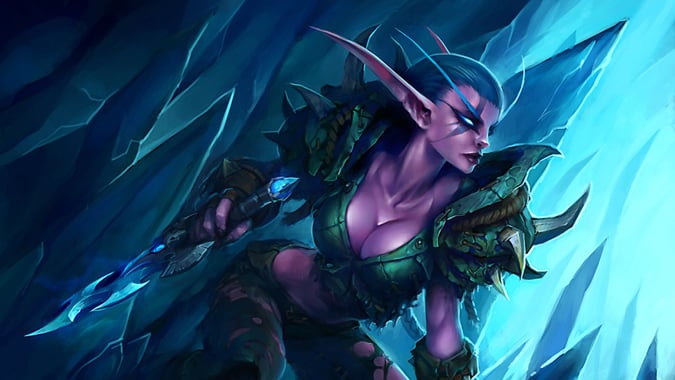
Loner characters
Of course, just because you throw all these events out there doesn’t mean that every character is going to show up and talk. Players create a variety of characters for roleplay. Some of these characters are social and bubbly — they’ll happily talk anyone’s ear off at an event. And sometimes you’ll run into characters that aren’t as talkative — brooding loners that aren’t really motivated to speak to anyone. {PB}
These characters are some of the most difficult to incorporate or include in events and meetups. If they don’t have a reason to talk, they don’t talk. The player behind the character may just enjoy roleplaying that kind of personality — or they may be a little shy themselves. Either way, you don’t want to exclude them, but you don’t want to single them out for special treatment, either.
In the case of loner characters, sometimes just having an out-of-character conversation with the player involved can open a lot of doors. Talk about their character — you don’t have to go into spoiler-ridden specifics. If they’re habitually low-participation, find out if they’re happy with that level, or if they’d like more reason to participate. You want to discuss what the player feels would be good reasons for their character to get involved.
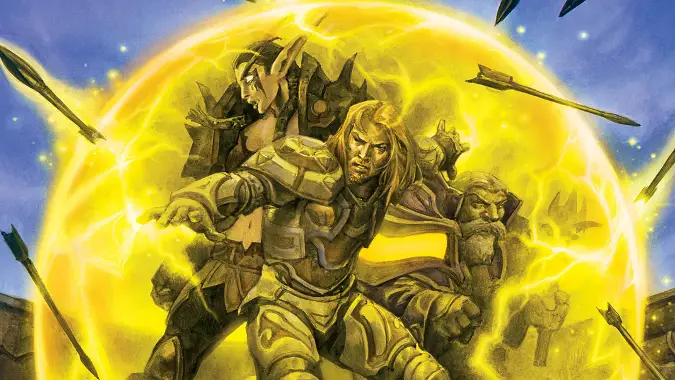
Create moments
In between all these events and meetups, you still want to encourage roleplay between characters. Through the storylines you’ve created, people should naturally have reasons to speak with each other. Encourage people to meet up outside of events. You can even establish an in-game location as a free-for-all roleplay zone. If a character stops by that area, they’re considered free and available for roleplay. Make sure everyone is aware of it.
In between that, there’s nothing wrong with a little gentle nudging. If you see two or three characters that look like they’d get along, suggest they get together. Give them a reason for doing so — a prompt like tracking down a rare and expensive bit of treasure, or even just supplies for the next guild meetup.
If a player consistently can’t make event times, keep them involved by giving them a solo mission to work on in parallel to the event — something they can work on while everyone is off vanquishing whatever foes you’ve conjured. This could be anything from researching information relevant to the event, to perhaps solving the mystery of why your NPC character asked the guild to go on this event in the first place. They can report their findings back to the guild when the player has time to do so, either via roleplay or even a written story.
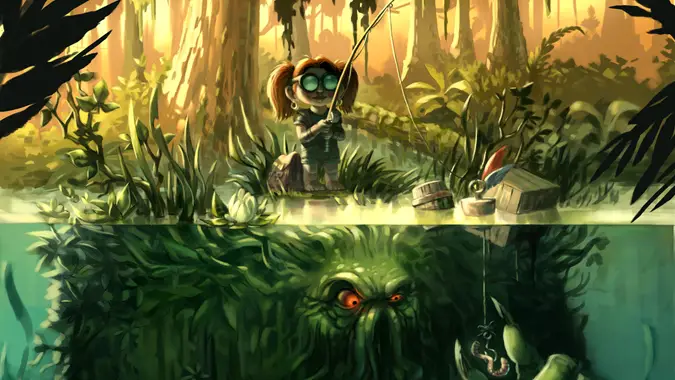
A guiding hand
Sometimes you’ll run into a player that just doesn’t seem to participate, no matter what you do. With players like that, it’s best to have an out-of-character conversation with them. Figure out what they want out of a roleplaying guild. Ask them why they joined, what they hoped they’d get out of the guild, and if they feel they’re getting that.
You’re not looking to handhold people and drag them into roleplaying. You can’t force participation in events, and you can’t force people to roleplay. All you can do is make it easier for people to find those roleplay opportunities if they’re looking for them.
That’s what running a guild or group is all about. It’s not about forcing people to roleplay — it’s about presenting little moments and opportunities where they can do it for themselves. You aren’t there to tell people what to do and when to do it — you’re there to provide moments. It’s up to your fellow roleplayers to take advantage of those opportunities when they come along.
Please consider supporting our Patreon!
Join the Discussion
Blizzard Watch is a safe space for all readers. By leaving comments on this site you agree to follow our commenting and community guidelines.
 @Shadesogrey
@Shadesogrey



